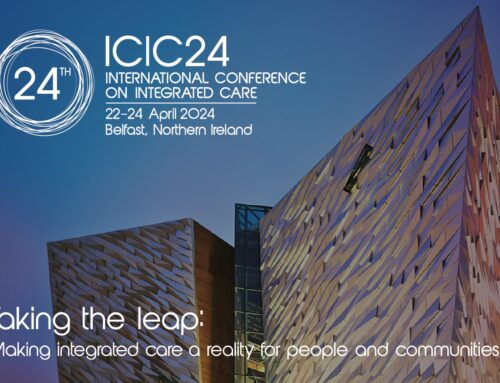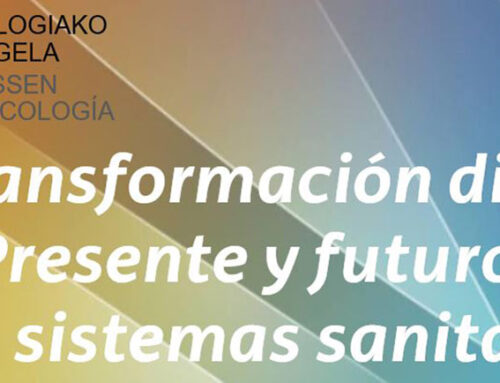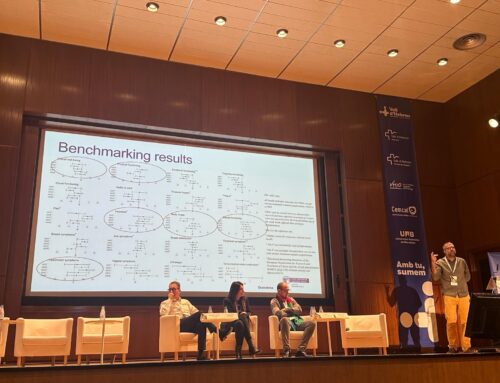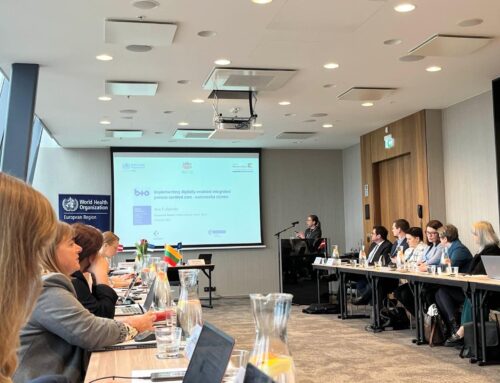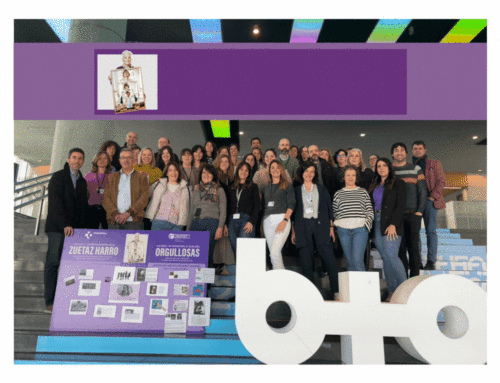The event took place on 30 March at the BAT Tower in Bilbao.
The new European research partnership for Transforming Health and Care Systems of the Future (THCS) aims to contribute to the transition towards more sustainable, efficient, resilient, inclusive, innovative and quality health and care systems focused on and accessible to all people. Biosistemak (formerly Kronikgune) together with the Department of Health and BIOEF are part of this partnership involving 62 entities from 26 countries, mostly represented by national and regional ministries, research funding agencies, and innovation and research organisations.
The core activity of THCS is the funding of research and innovation projects through joint transnational calls on common priorities and themes. In 2023, the Department of Health, through BIOEF, will launch the first annual transnational call which aims to fund research projects that promote the transition to more sustainable, efficient, resilient and innovative high-quality health and care systems. In the framework of the THCS, the Basque Government’s Department of Health will contribute €2.1M over the 7-year duration of the partnership.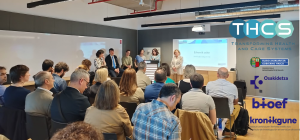 During the event, in addition to presenting the partnership to the different organisations of the Basque Health Ecosystem present there, the Basque Country’s commitment to participate in the European Union’s Health Partnerships was presented. Marian Ibarrondo, Director of R&D&I at the Department of Health, was in charge of welcoming and introducing the new partnership to the attendees. She also wanted to emphasise how the participation of Basque organisations should be aimed at responding to the needs of Osakidetza. Along these lines, the Director of Health Care at Osakidetza, Victor Bustamante, presented the areas and strategic lines that the health system seeks to address and on which research should focus.
During the event, in addition to presenting the partnership to the different organisations of the Basque Health Ecosystem present there, the Basque Country’s commitment to participate in the European Union’s Health Partnerships was presented. Marian Ibarrondo, Director of R&D&I at the Department of Health, was in charge of welcoming and introducing the new partnership to the attendees. She also wanted to emphasise how the participation of Basque organisations should be aimed at responding to the needs of Osakidetza. Along these lines, the Director of Health Care at Osakidetza, Victor Bustamante, presented the areas and strategic lines that the health system seeks to address and on which research should focus.
For her part, the scientific coordinator of BIOEF, Lorea Mendoza, was in charge of explaining the main objectives of the THCS, making special mention of the strategic importance of forming part of international cooperation in the field of health. Ane Fullaondo, Scientific Director of Biosistemak (formerly Kronikgune), shared the operations and functioning of the partnership, which is structured in 10 work packages. Ainhoa Martin, a member of the scientific coordination of BIOEF, presented in more detail the call that the Department will launch in 2023 with a budget of 400,000 € in its first year. Finally, the project coordinator of Biosistemak (formerly Kronikgune), Dolores Verdoy, explained the keys to a successful outcome in the formation of winning consortia for the first call of the THSC.
The first call will have a first European phase that will remain open until 13 June and will be resolved in autumn. More information on the call can be found at the following link: https://www.thcspartnership.eu/funding/announcement-of-the-joint-transnational-call-for-proposals-healthcare-of-the-future-.kl

